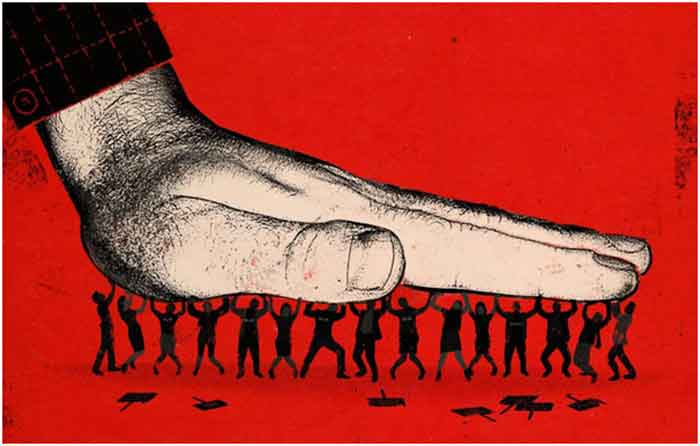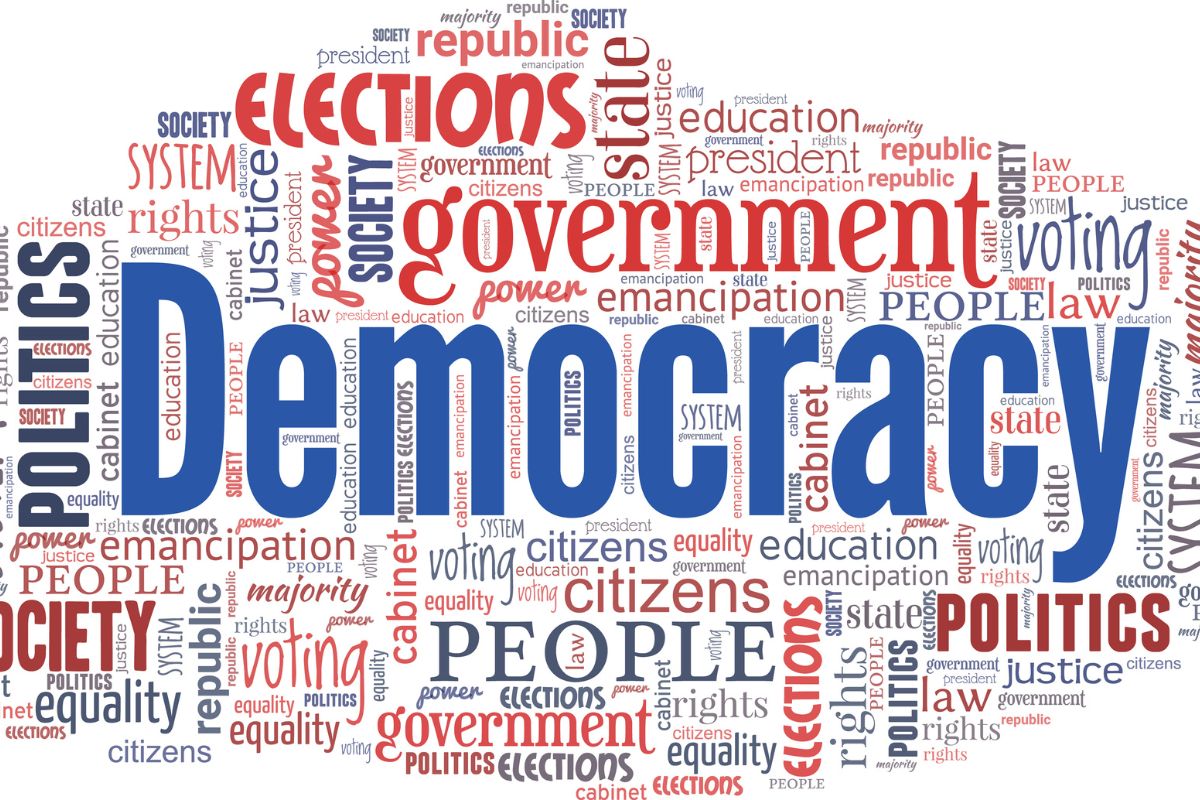A majority rules system, a term starting from the Greek words “demos” (individuals) and “kratos” (power), remains as a guide of political way of thinking and administration in the cutting edge period. Established in the conviction that power at last dwells with individuals, a majority rules system has gone through different translations and executions since the beginning of time. This one of a kind type of administration has turned into the prevalent political framework across the globe, supported for its standards of correspondence, portrayal, and metro interest. As we explore the perplexing flows of the 21st hundred years, it is basic to dig into the pith of a majority rules government, investigating its development, challenges, and the job it plays in deeply shaping social orders around the world.
Verifiable Advancement of A vote based system:
The idea of a majority rule government tracks down its starting points in old Greece, quite in Athens during the fifth century BCE. Athenian vote based system, albeit restricted to a male populace, denoted a vital takeoff from imperious rule. In any case, the verifiable excursion of a majority rule government didn’t advance directly. It experienced variances, interferences, and reevaluations throughout the long term. The Magna Carta in 1215, the improvement of parliamentary frameworks, and the Illumination period’s goals generally added to forming the popularity based scene.
The French and American Upsets additionally impelled majority rules government into the spotlight, moving political scholars like John Locke and Jean-Jacques Rousseau. The nineteenth and twentieth hundreds of years saw the continuous development of testimonial privileges, including the battle for ladies’ freedoms, social equality developments, and the destroying of provincial realms. The spread of a majority rule government became interwoven with the quest for basic liberties and civil rights.

Standards of A majority rules government:
At its center, a majority rule government incorporates a bunch of rules that guide its working. These standards incorporate well known power, political equity, individual privileges, law and order, and free and fair races. The thought is to lay out a framework where residents effectively take part in dynamic cycles, choose delegates for voice their interests, and guarantee that power is disseminated, forestalling its fixation in the possession of a couple.
Agent a majority rule government, as polished in numerous countries today, includes residents choosing authorities for go with choices for their sake. This model looks to adjust the requirement for effective administration with the basic of shielding individual opportunities. Direct majority rules system, then again, permits residents to partake straightforwardly in dynamic through mandates and drives, encouraging a more profound feeling of contribution however presenting difficulties in enormous and different social orders.
Difficulties and Reactions:
Notwithstanding its boundless acknowledgment, a vote based system faces a bunch of difficulties and reactions. One of the relentless difficulties is the pressure between larger part rule and security of minority privileges. The gamble of “oppression of the larger part” represents a danger to underestimated gatherings, requiring shields to guarantee the insurance of individual freedoms.
Monetary imbalance and the impact of cash in legislative issues likewise present significant difficulties to popularity based standards. Pundits contend that concentrated abundance can contort the vote based process, giving unjustifiable impact to financial elites. Besides, issues of elector concealment, manipulating, and deception challenge the respectability of decisions, creating shaded areas on the authenticity of majority rule results.
In the time of digitalization, the quick dispersal of data and the ascent of web-based entertainment have presented new difficulties. The control of general assessment, the spread of falsehood, and the potential for outside obstruction in decisions have become squeezing concerns, requesting a reassessment of the components that support majority rule administration.
Worldwide Points of view on Majority rule government:
A vote based system’s worldwide excursion has been set apart by the two victories and difficulties. While certain countries have effectively embraced popularity based standards, others have confronted battles on their way to majority rule administration. Social, authentic, and financial elements assume critical parts in forming the direction of a vote based system in various locales.
Western majority rule governments have customarily been viewed as leading figures of popularity based values. In any case, the 21st century has seen the ascent of elective models, for certain countries leaning toward dictatorship or crossover frameworks that mix components of a majority rules system and totalitarianism. The continuous discussion about the comprehensiveness of majority rule values ponders different worldwide points of view administration and political frameworks.
A majority rule government Advancement and Difficulties:
Worldwide endeavors to advance majority rule government have been a critical element of worldwide legislative issues. Associations, like the Unified Countries and different NGOs, have tried to progress vote based administration as a way to cultivate harmony, soundness, and common liberties. Be that as it may, a majority rules system advancement has not been without its contentions, with allegations of social government and the inconvenience of unfamiliar qualities.
Besides, the viability of a majority rules government advancement endeavors has confronted examination in cases where outside mediations have prompted unseen side-effects, including social distress and political shakiness. Finding some kind of harmony between regarding social subtleties and supporting for majority rule standards stays a complicated and continuous test in the domain of global relations.
End:
A vote based system, as a dynamic and developing idea, remains at the junction of history, reasoning, and administration. Its standards have directed countries through extraordinary minutes, molding the course of human development. Notwithstanding, the 21st century presents interesting difficulties that request a reconsideration of majority rule organizations and practices.
As social orders wrestle with issues of monetary disparity, mechanical disturbance, and the disintegration of confidence in organizations, the flexibility and versatility of majority rule administration are scrutinized. Exploring the unavoidable trends requires an aggregate work to address the inadequacies, safeguard vote based esteems, and guarantee that the commitment of government by individuals perseveres for a long time into the future. In this continuous excursion, the discussion encompassing majority rule government stays as essential as could be expected, welcoming reflection, evaluate, and advancement to support the imperativeness of popularity based standards in the perplexing scene of the cutting edge world.
